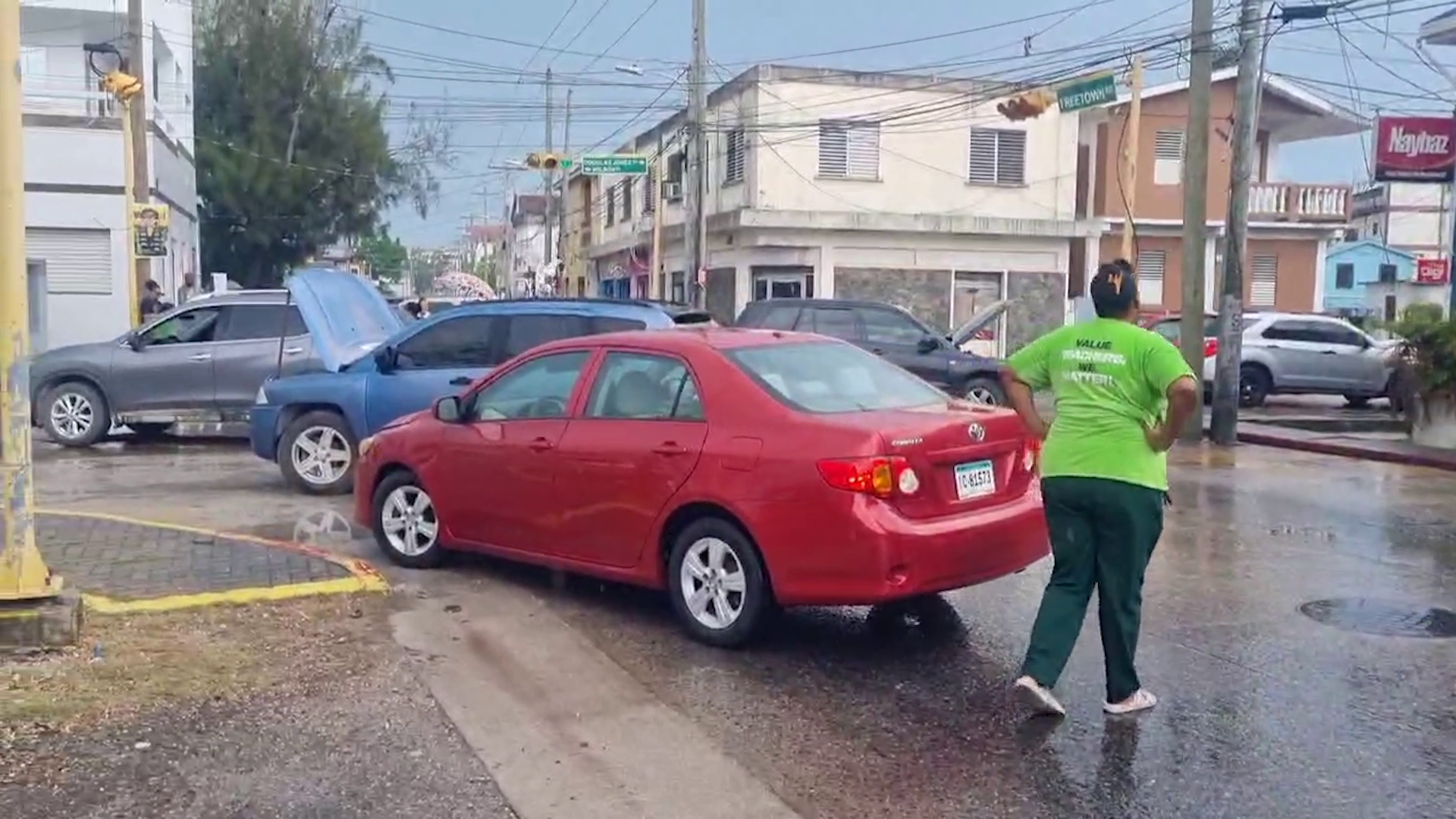Across Belize today, the message from teachers and public officers was loud, clear, and impossible to ignore. In a bold show of defiance, union members took to the streets, not with signs or chants alone, but with their vehicles, shutting down major roads and bringing traffic to a standstill. From Freetown Road in Belize City to Dangriga and Bella Vista, the strategy was the same: block the flow, amplify the message. And while the government offered a modest raise, union leaders say it’s not enough, and they’re prepared to go even further. Tonight, we take you to the heart of the action, where frustration is mounting, tensions are rising, and the call for fair treatment is growing louder by the day. Here’s News Director Isani Cayetano.
Across the country, union members are turning to a bold strategy to make their voices heard: blocking roads. And while it may frustrate commuters, the message behind the move is loud and clear.
Coral Lord, BNTU President, Belize District
“All our branches nationally decided that we need to show the government that we’re serious about getting our adjustment and our frozen increments, since they have already offered that to us. However, I believe that the Prime Minister said “ni modo” or something to that effect, that we are holding the children hostage. We are not.”
By halting traffic, unions are doing more than just causing delays, they’re forcing both the public and the government to pay attention. Roads are the arteries of our daily lives, essential for getting to work, transporting goods, and even responding to emergencies. So, when they’re blocked, the disruption is immediate and impossible to ignore.
ASP Stacy Smith, Staff Officer
“What the department appreciates and the country must appreciate is that whilst teachers have their right to freedom of expression, which I understand to mean in this instance them registering their discontent, them expressing their right cannot be done in such a way that infringes on the rights of others. A relevant right, in this instance, is the right to freedom of movement which is impacted by the blockage of roads.”
Coral Lord
“As our president rightly said, both governments, when they are not in power they can put on a green shirt, they can stand beside us and they make a lot of promises. But now, they are in the driver’s seat. That narrative has changed. The narrative has changed and we want them to know [that] we’ve already earned what they have taken away from us. They have already afforded those who are at the top tier of government to get a raise, without even asking. We are asking for what we know we’ve worked hard for and for what we know we deserve.”
Stacy Smith
“This course of action which commenced around five o’clock this morning is part of the industrial action that the union is taking in regards to the labor dispute that they have with the Government of Belize. Both of these incidents entail the teachers utilizing vehicles to block the road at junctions in Dangriga and Bella Vista, respectively.”
Coral Lord
“In the coming days or weeks ahead, it will be even more serious than this because we are prepared to go the full measure and the full extent we need to go to get what we Know we have worked for and what we deserve.”
Stacy Smith
“We are in the process of reviewing provisions of the criminal code, the motor vehicle and road traffic act, and the control of public meetings and public processions act with a view to identifying the relevant offenses which, at this point, appears to be obstructing the free flow of traffic, unlawful assembly, obstruction of the officers in the execution of their duties and aggravated assault. So these provisions are being reviewed with a view to bring persons before the court where there is the belief that the they have engaged in such conduct.”
When everyday routines are disrupted, it grabs attention—and that’s exactly the point. Roadblocks create urgency, pushing the government to the table faster and making it harder to ignore the demands on the ground. Isani Cayetano for News Five.
